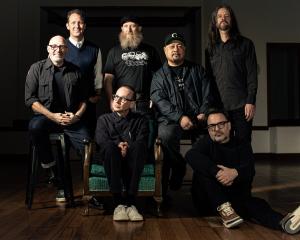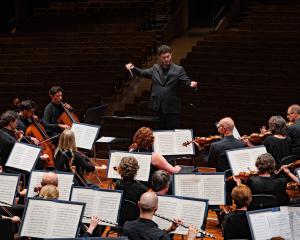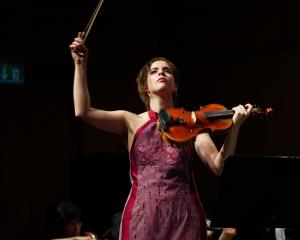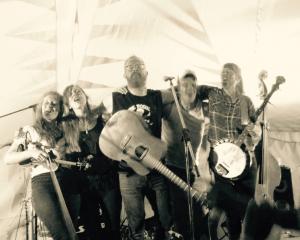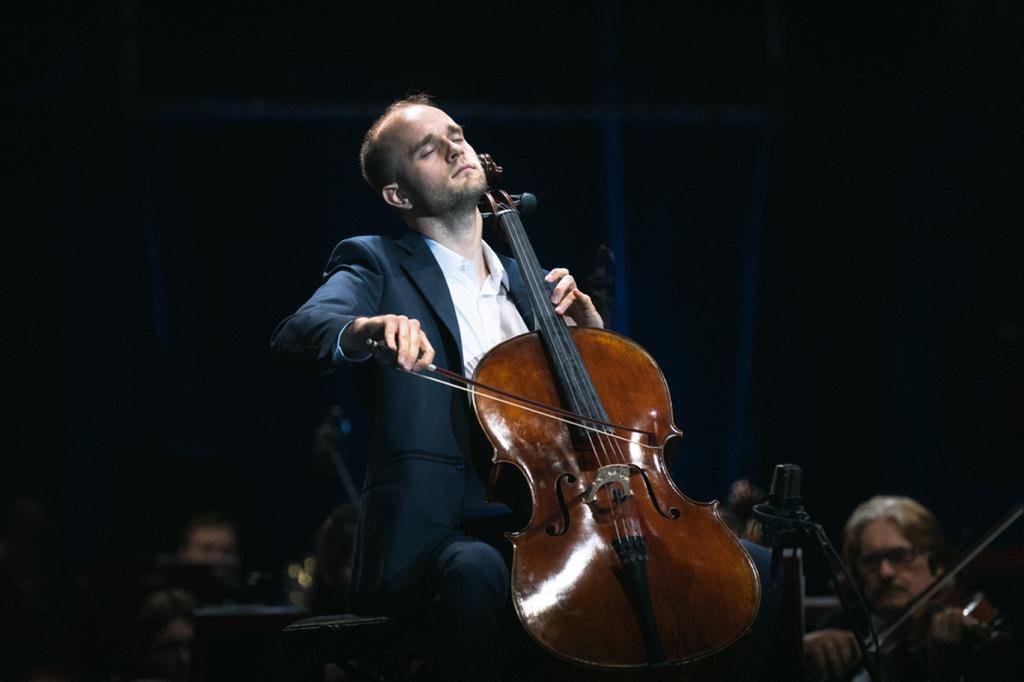
His parents played the piano, his grandfather the trombone and piano and his uncles and cousins were musicians in Poland, so he naturally assumed everyone played something.
"For me starting to play instrument was a natural thing. I couldn’t imagine not playing an instrument."
Kulakowski, who was born in the Polish port city of Gdansk, saw himself taking up piano, so at every opportunity he would doodle on the keyboard — but his parents had other ideas. They gave him the cello to play.
"I very quickly fell in love with the instrument. I started to play when I was 6."
At 14 he started studying at Stanislaw Moniuszko Academy of Music in Gdansk with Marcin Zdunik.
It is a decision he has never regretted, as it opened up a whole new world of music for him.
"It was beyond my imagination. For the first time I considered different colours, composers, ideas behind a piece, a whole new different level. I was very lucky to study with him at that time.
"I was not the best student in school — almost never around, as I was playing cello."
When he finished school, he did a lot of research to find the best cello teacher he could before he decided upon Wolfgang Schmidt.
"I loved it."
In 2015 at the age of 19, he won first prize and a special award at the Lutoslawski International Cello Competition, and two years later a Laureate in the finals of the Queen Elisabeth Competition in Brussels. He was selected for representation by the Young Classical Artists Trust (YCAT) in 2019.
When Schmidt was offered a job at the Kronberg Academy, Kulakowski followed him there, and just finished his studies this year.
"It was also better [than] anything I could imagine at that time of my cello life, in this place [I] not only [worked] with [a] teacher but so many amazing musicians to teach there — I was very lucky with teachers."
In that time recitals and chamber music have taken him across Europe and further afield, including to the Piatigorsky Cello Festival in Los Angeles, the Beijing Cello Festival and the Penderecki, Lutoslawski, Moritzburg, Kronberg, Krzyzowa Music, Hohenstaufen and Munich Rising Stars Festivals.
He has also performed as soloist for the National Philharmonic Warsaw, Baltic Sea Philharmonic, Sinfonietta Cracovia, Sinfonia Iuventus, London Mozart Players, the Deutsche Kammerphilharmonie Bremen, Brussels Philharmonic, St Petersburg Symphony and Calgary Symphony, among others.
But it was being selected for the Young Classical Artists Trust (YCAT) in 2019 that, unknown to Kulakowski then, would lead to his visit to New Zealand.
The trust supports graduating musicians through what can be a difficult transition from education to professional life, helping with management and gigs.
Through YCAT he met fellow musician New Zealander Benjamin Baker, who just happens to be the co-organiser of the At the World’s Edge Music Festival, held in the Central Lakes district.
The inaugural festival was held last year under the organisation of Baker and fellow violinist Justine Cormack, a Wanaka resident and founding member of NZTrio, but due to Covid-19 had no international guests.
"It was a test of our mission of bringing people together with the incredible energy these surroundings bring," Baker says.
This year, after a great response to last year’s festival, it is back with an extended 10-day programme and an international guest — Kulakowski.
"I’m very much looking forward to it. It was quite unexpected; was big surprise when Ben wrote to me," Kulakowski says.
It will be Kulakowski’s first visit to New Zealand and he will be spending nearly three weeks in the country, so is hoping to really experience the culture in that time.
"I’ve heard so many amazing things about New Zealand — I’m sure [it’s] going to be great. I’ve seen photos — it looks amazing, it looks surreal."
Baker says the performances for this year’s festival are based around the themes of togetherness and solitude, drawing on Nietzche’s advocacy for the need for solitude in society — especially in the creative process — which went on to inspire a generation of artists, and "frei aber einsam" (meaning "free but lonely"), a German saying which resonated with violinist Joseph Joachim and inspired collaboration between Schumann, Albert Dietrich and a young Brahms.
"Similarly to Nietzche who inspired many many composers sprinkled throughout the festival such as Strauss, Mahler and Schoenberg — those three threads connect every piece in the festival."
The third strand is music from "our land" and this year’s festival features Gareth Farr as its composer in residence. His work will feature in every programme, giving audiences a rare opportunity to hear a variety of the composer’s work during the 10-day festival.
Baker says Stravinsky said he could not pass judgement on a new piece of music until he had heard it five times, something that would be very rare for a person to be able to experience normally.
"It could be a lifetime. By the time the festival ends we will have a sense of his musical language, our ears having a chance to digest and absorb this unique and new way of writing."
The first performance of the festival will feature a commissioned piece, a violin-cello piece, Where Will They Bury My Bones?, which also has a libretto by Paul Horen and looks at the way people experience loneliness, distance and disenfranchisement.
The performance, in the concert "Tranquil Bay", will feature Kulakowski and violinists Baker, Cormack, Wilma Smith and Marike Kruup and baritone Julien Van Mellaerts.
A concert Baker is especially looking forward to is one with Kulakowski where both will play solos in a more relaxed and intimate setting and a discussion will be held with Farr.
"There are the very intimate, beautiful surroundings and a chance to get up close and personal with Maciej and see the astonishing cellist he is," Baker says.
For Kulakowski, both concerts offer a chance to play some of his favourite music, including the Bach cello suites. Before Bach there had been little written for cello, but Bach took it to another level, he says.
"Each suite [is a] representation of that, even though very complex and so amazingly written," he says.
"All those voices, there is so much going on but we don’t really hear it. At the same time it’s a very tricky thing as performer to really bring it out. When it does work, it creates this amazing space and it’s really timeless. For me whenever I want spend time with me, to mediate, to be alone and get [a] feeling of returning to my core, then the Bach suites are a perfect place for that."
Another composer he greatly admires, Krzysztof Penderecki, of Poland, was inspired by Bach in his works for cello, which are also complicated pieces with many voices.
"He was a very solitary man. He spent a lot of time by himself and loved nature and had an incredible garden. He planted every tree himself there. He knew every tree, and names — that’s how obsessed he was. The is even a maze inside the park. It says a lot about the character of his music. It’s like that wandering through [a] maze or forest. I think he loved to be alone. I think that [is] what composers do, to really find their voice.
"We all need that if we want to find ourselves and really understand ourselves. We need to time alone but free so we can understand each other better."
When not performing around the world, Kulakowski is based in his home city, teaching at the same academy he learnt at.
"I love my home town."
Before coming out to New Zealand Kulakowski and Baker are performing a selection from the festival in London to give the audience a taste of what they are missing and encourage them to think about coming to next year’s festival.


